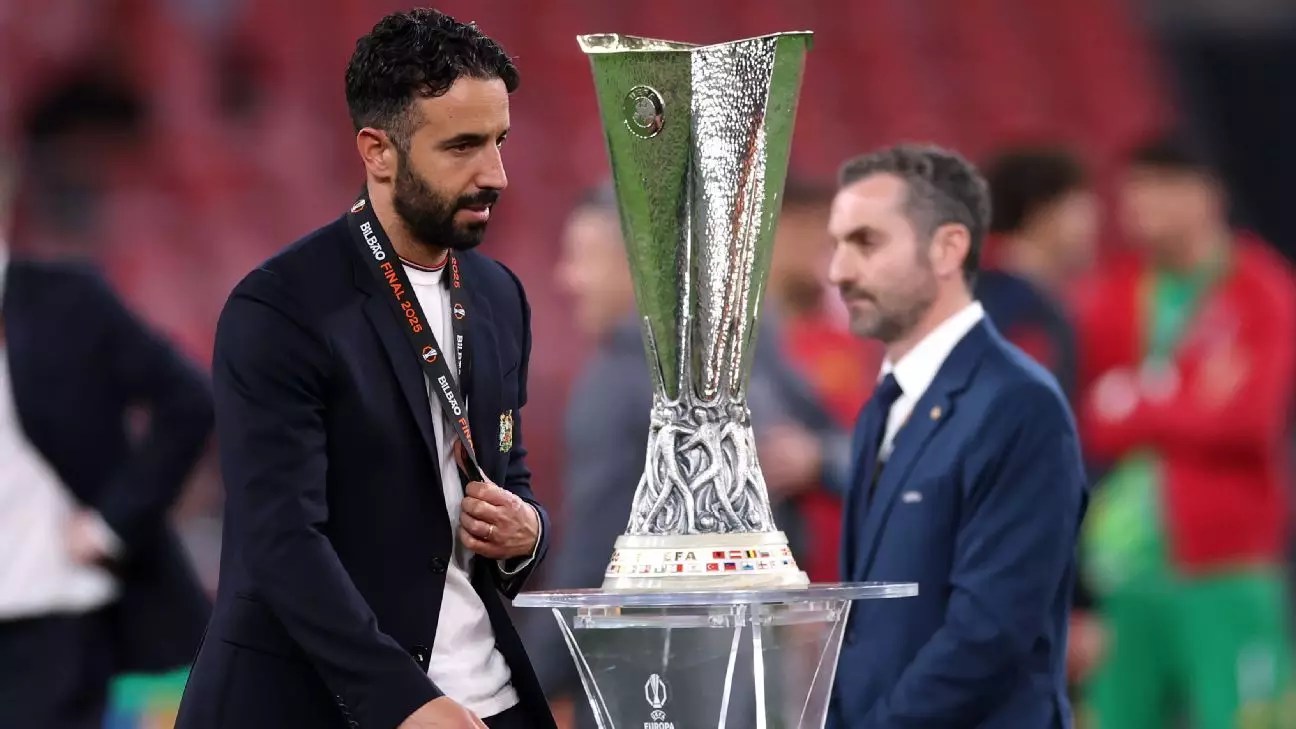In the unpredictable realm of football, managerial upheavals are all too common, particularly for clubs with lofty aspirations like Manchester United. Recent reports reaffirm that the United hierarchy remains firmly behind Ruben Amorim, despite an unfortunate defeat to Tottenham in the Europa League final. This resilience from the board suggests a committed and ambitious vision for the club’s future, even as Amorim finds himself grappling with a challenging debut season.
Amorim’s tenure, marked by a 1-0 loss in crunch moments, symbolizes more than just a missed trophy—it’s an opportunity for growth and refinement. The quality of a manager should not solely be measured against immediate results but rather evaluated through a broader lens. The promise of change, evolution, and tactical restoration requires time, and leadership at Old Trafford appears prepared to provide it.
Macroeconomic Implications of Failure
The ripple effects of missing out on a Champions League spot extend beyond the pitch and influence the club’s financial landscape. With an anticipated loss of approximately £100 million in revenue, the challenge of navigating the summer transfer market becomes steep. Amorim himself has acknowledged the financial constraints in his post-match comments. This proactive approach signals awareness and maturity, highlights the stark realities of the modern game, and places heavy emphasis on development rather than immediate fixes.
Moreover, these financial hurdles may not only limit purchases but may also affect player morale and performance continuity. Financial stability is vital, and competing without the allure of European football will undeniably shift perceptions both within the dressing room and among potential signings.
Support from the Fans and Board
Despite the disappointments, the outlook from the board suggests a significant focus on the long-term vision for United. There’s an inherent understanding that Amorim, only at the helm for a brief period, has the potential to cultivate a fresh identity and ethos for the club. The lack of a public vote of confidence may seem unorthodox, yet it signals a strong undercurrent of trust.
Support from fans becomes crucial in these trying times. Engagement from the stands has the power to instill confidence and encourage players during moments of adversity. The final match of the season against Aston Villa presents an opportunity not just for a turnaround in results but also for fans to rally behind Amorim, reinforcing the notion of solidarity amid turbulence.
A Shift in Focus
Interestingly, Amorim’s loss also opens room for introspection and tactical adjustments in the Premier League, which, despite its ups and downs, remains a more immediate battleground. The ability to regroup and focus on securing a stronger mid-table finish could yield dividends for the next season’s campaign. Amiably, this reflects a strategic shift towards strengthening the team’s foundational structures while nurturing young talent.
In the grand scheme of club dynamics, this transitional phase under Amorim might redefine United’s trajectory. While disappointing, it possesses the potential to lay groundwork, anchor the vision, and reignite the passion that has long been synonymous with Manchester United. The journey thus far might be fraught with setbacks, but if approached with resilience and clarity, the rewards could be significant.


Leave a Reply